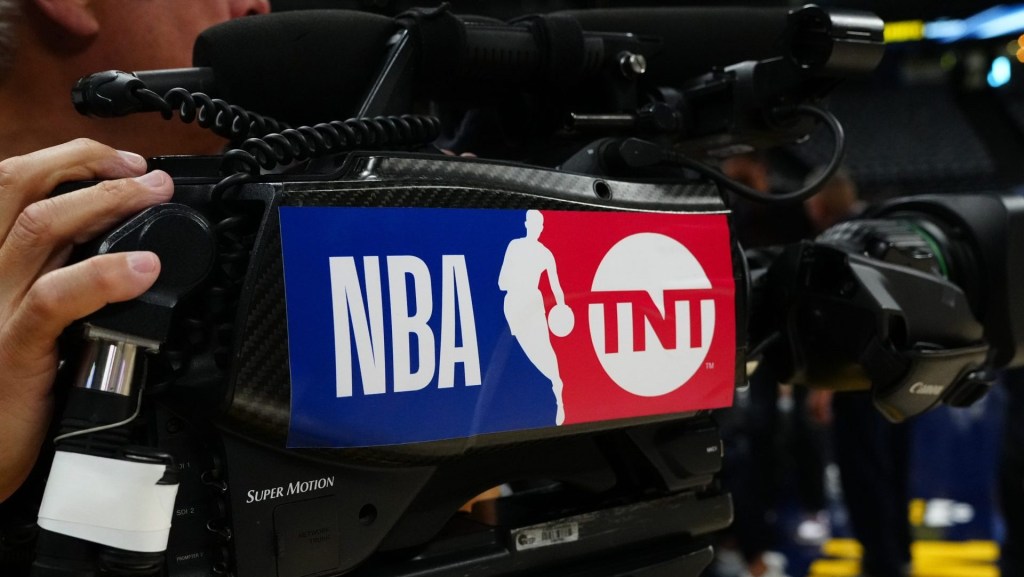This interview is presented to you by the University of Nebraska — Lincoln Master of Arts in Business with a Specialization in Intercollegiate Athletics Administration
By: Austin Weaver, @AustinTWeaver

South Florida is known for its exotic nightlife and successful sports franchises, both of which played a part in molding Darren Heitner into the attorney he is today. Growing up a die-hard Dolphins and Heat fan, Heitner quickly embraced the Marlins when they made the move to Miami.
Heitner, from a young age, knew he wanted to find his way into the sports industry, initially finding an interest in sports medicine. However, a distaste for blood led Heitner to find another path to working in the industry. After spending four years on the high school debate team, focusing on the discipline of congress, Heitner found a passion for negotiation.
After graduating from high school, Heitner would move on to the University of Florida, where he majored in political science with minors in geography and, more importantly to Heitner, communications.
Heitner would stay in Gainesville after graduation and enroll at the UF College of Law. During his three years in law school, Heitner continued to pursue course work in fields that interested him, taking courses such as intellectual property, mediation and negotiations.
While his coursework was important, Heitner acknowledges the importance of learning through experience.
“Learning through an internship is absolutely vital. I don’t think I would have been equipped to start my own agency if I didn’t have a chance to absorb information and learn from individuals with a plethora of experience.”
Heitner’s internship experience took place at what was then called Career Sports Entertainment, now more commonly referred to as CSE.
“Between my sophomore and junior years, I was fortunate enough to intern with CSE, which was an amazing opportunity and my first taste of sports business. I was in the client services division where I was tasked with assisting the athlete representation employees by helping with contract negotiations and the other services that are provided off the playing field.”
It was this initial taste of the sports industry that created a hunger to learn more and the birth of Sports Agent Blog. Initially titled, I Want To Be A Sports Agent, SAB was created to allow Heitner to ask questions and build relationships with people working in the sports agency field.
“I made a New Year’s resolution that I would write every weekday. For the first few months, there were 30 maybe 40 people tops reading the content I was producing, but slowly as people started sharing the website, I saw the fruits of my labor paying off. It became a site that appeared to be appreciated by the world. It was a service that hadn’t really existed up until that point. You had Sports Business Journal behind a paywall with one journalist covering the sports agent industry. Here I was, a 20-year old undergraduate who decided to be the first at providing this type of information and it allowed me to make a name for myself. I had no idea that it would become the business it is today, but I started it to strengthen my role in the sports industry and it has done just that.”
Building SAB was not Heitner’s first business venture. As an undergraduate, Heitner worked as a nightlife promoter and eventually started his own promotion company.
“My experience as an entrepreneur was really important for my growth as a business person. I learned the importance of marketing, promoting and thinking outside the box to make a sale. I had to learn to create value and how to persuade individuals to go to certain nightclubs and spend ‘x’ amount of money.”
Heitner went from opening his own nightlife promoting business to launching SAB and eventually his own sports agency, Dynasty Athlete Representation.
“Right before starting law school, I built my own agency from scratch. Over the next three years, I not only studied for my courses and made sure I was understanding the information I would need to become a successful attorney, but I was also recruiting and servicing the clientele I was fortunate to work on behalf of. I continued to do that the year after I graduated and was working as an associate attorney in Fort Lauderdale. Along the way, I brought on Jason Belzer, who helped run our coach division, which he continues to do through his own company.”
When most people think sports agents, they envision glamour and easy work. Working in the sports agency world is far from that.
“I can speak from experience; it is very difficult to break into the field. If you go the untraditional route like I did, you will have many sleepless nights and will wonder if it will ever become a profitable endeavor. You will constantly be scared that your clients will grow to the extent that they will be pried away from you by your competitors. If you go the more traditional route, the barriers are still very high. There are hundreds of others fighting for the same position as you might be. You have to be willing to take an entry level role or even an internship that might be unpaid, just to get your foot in the door. Unless you own or have equity in one of the big firms, it is a hard industry to make a decent living in.”
Law school is supposed to be three years of challenging coursework, but Heitner stresses the importance of maximizing not only the learning aspect but also the social aspect.
“Don’t put all your energy and efforts into your coursework. That may sound counterintuitive, but there is so much more to law school than what happens in the classroom. Use the opportunity to build and grow relationships with your colleagues. They will be the people who refer clients to you and who you will refer others to. You should also look outside the boundaries of your own law school. Whether it be starting your own company or clerking at a law firm that has practices areas in fields that interest you, get those experiences in and get your foot in the door. Enjoy yourself and don’t take yourself too seriously. Use those three years as an opportunity to find what makes you happy.”
While experiences outside the classroom are important, classwork is also something that should be approached with a plan in mind.
“I would strongly suggest taking courses based on content and not what time or day they are offered. My sports law class was at like 7 a.m. on Fridays. Whether it is trademark law or negotiations, take a class because you can benefit from it, not because it keeps you from having class on a Tuesday or Thursday.”
Heitner’s willingness to write daily and devotion to continuously learning has led to several writing opportunities.
“In early 2012, I received an email from someone at Forbes and it essentially said that some editors enjoyed my work with SAB and wanted to know if I would be interested in writing for Forbes. I was working at a law firm in Miami at the time and remember showing the email to one of my colleagues and laughing about it, trying to decide if it was real or not. I responded not thinking much about it, but soon found myself in negotiations for a paid position with Forbes. At first there was a lot of editorial control, but after a month, they handed the keys over and have allowed me to write about whatever I want, whenever I want. I’ve been to the Master’s, The Belmont Stakes and even to Ireland to cover Conor McGregor before he was who he is today. It has been an amazing adventure that has allowed me to grow as a professional in the world of sports.”
Heitner has years of experience writing for Forbes and recently Inc. Magazine, but his title of published author is one of the more unique titles he can claim.
“I was contacted by an individual with the American Bar Association about writing a sports law treatise. Much like the offer from Forbes, it didn’t take me long to accept. After some back and forth about what content to put in the book, I got to writing. It took months to gather my experiences and what I thought were important areas of sports law which encompasses so many different areas of law. I submitted a draft, and after a few changes it was published. It was the first time I wrote my own book, and while the process was agonizing, there is extreme gratification when you are done. There is also a sense of fear because you don’t know how it will be accepted. It was a really nice feeling to receive such strong responses and commentary and also see law schools and graduate schools use it in their curriculum. Overall it was a pain in the ass to write, but I’m glad I did and look back at it with a lot of joy.”
No matter what role in the sports industry you may be pursuing, Heitner shared some advice he was given in his time at CSE.
“I’m paraphrasing Lonnie Cooper, but it boils down to when something bad happens, ruminate on it for two minutes and move on. The same is said about success, celebrate for two minutes and move on. You can’t worry too much about the negative or positives because the next opportunity could pass you by.”
You can follow Darren on Twitter HERE.





![[Subscription Customers Only] Jun 15, 2025; Seattle, Washington, USA; Botafogo owner John Textor inside the stadium before the match during a group stage match of the 2025 FIFA Club World Cup at Lumen Field.](https://frontofficesports.com/wp-content/uploads/2026/02/USATSI_26465842_168416386_lowres-scaled.jpg?quality=100&w=1024)
![[Subscription Customers Only] Jul 13, 2025; East Rutherford, New Jersey, USA; Chelsea FC midfielder Cole Palmer (10) celebrates winning the final of the 2025 FIFA Club World Cup at MetLife Stadium](https://frontofficesports.com/wp-content/uploads/2026/02/USATSI_26636703-scaled-e1770932227605.jpg?quality=100&w=1024)









